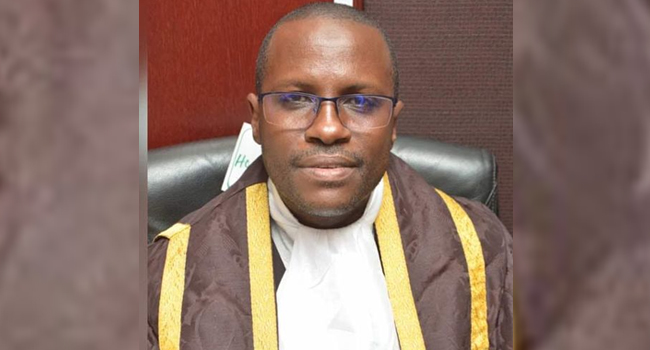
Aliyu noted that sexual harassment is not a menace peculiar to tertiary institutions alone as it is on the rise in primary and secondary schools.
Aliyu stated this on Tuesday in Abuja at a one-day national stakeholders engagement on sexual harassment prevention which was organised by the commission in collaboration with the Gender Mobile Initiative.
The engagement was aimed at ensuring that the model policy for tertiary institutions does not end up like many others that needed to be adequately implemented.
Aliyu stated that sexual harassment and other related societal ills such as gender discrimination are tarnishing the nation’s reputation.
He added that until there is a heavy consequences for offenders, the menace would continue to be on the increase.
He added that anyone, irrespective of status, designation, or gender, staff or student, can be a victim of sexual harassment.
“Likewise, anyone could be a perpetrator.
“It is sadly interesting to note that sexual harassment, though more notorious in tertiary institutions, is quite rampant in primary and secondary institutions, too.
“Only a consistent, persistent, focused and united campaign can ensure that the challenge of sexual harassment in institutions is decisively addressed.
“It is a notorious fact that Nigeria has so many laws and policies, but many of them are not being correctly implemented. Therefore, proper implementation of the model policies cannot be over-emphasized. The success of this initiative largely depends on the active participation and commitment of stakeholders like you” Aliyu said.
He recalled that following the commission’s commitment to addressing all forms of corruption, including abuse of office via sexual harassment, with the support of the Ford Foundation, ICPC executed a project aimed at curbing this societal malaise a few years ago.
He said, “One of the expected outcomes of that project was the drafting of model anti-sexual harassment policies for various levels of educational institutions”.
He noted that the commission in the spirit of partnership, engaged the Gender Mobile Initiative to draft a model policy for tertiary institutions adding that the Federal Ministry of Education approved the policies of the primary and tertiary institutions.
“The policies are not necessarily meant to be adopted word for word by stakeholders. Instead, it is expected that although they may be adopted wholly by any institution that so desires, they should serve as guidelines for what a comprehensive policy should contain”.
In her remarks, the Minister of Women Affairs, Mrs Uju Kennedy, said measures are being put in place to tackle the menace of sexual harassment in the country through the establishment of mobile courts for proper prosecution of perpetrators.
She said the ministry is working in collaboration with hotel owners to deny access to under-aged children from lodging and report any such attempts to security operatives to curb the terrible sexual harassment plaguing the society.
‘Whoever commits sexual harassment will be prosecuted either a man or a woman. When we have consequences people will start respecting themselves. I believe mainly in justice. We have mobile courts now. We reached out to hotels with no lodging of underage girls”, Kennedy said.
She noted that sexual harassment is not relegated to tertiary institutions alone but even in primary and secondary schools and is often carried out by teachers and sometimes among pupils.
She urged all stakeholders to rise to the challenge by ensuring that sexual harassment is brought to the barest minimum to address the problems of the stigmatization, and low self-esteem among victims.
The founder and Executive Director of Gender Mobile Initiative, Omowumi Ogunrotimi, said that the organisation realised that it was really important for stakeholders to think about a prevention framework rather than a response, framework.
“That is why we are in collaboration with ICPC to see that the policy we designed together, and this policy I would say, will be a product of extensive community engagement.
“We really look to moving this forward from here because we know in Nigeria when policies are made, they do not automatically translate into implementation.
“That is why we have drawn participants from far and wide, over 25 Commissioners of Education from States of the federation to participate in this programme.
“We have NANs female wing which means that this particular process is all-inclusive. So that it centres on leadership, participation, aspiration and experiences of persons who are mostly affected by the structural inequity, and that is the student community” she said.













